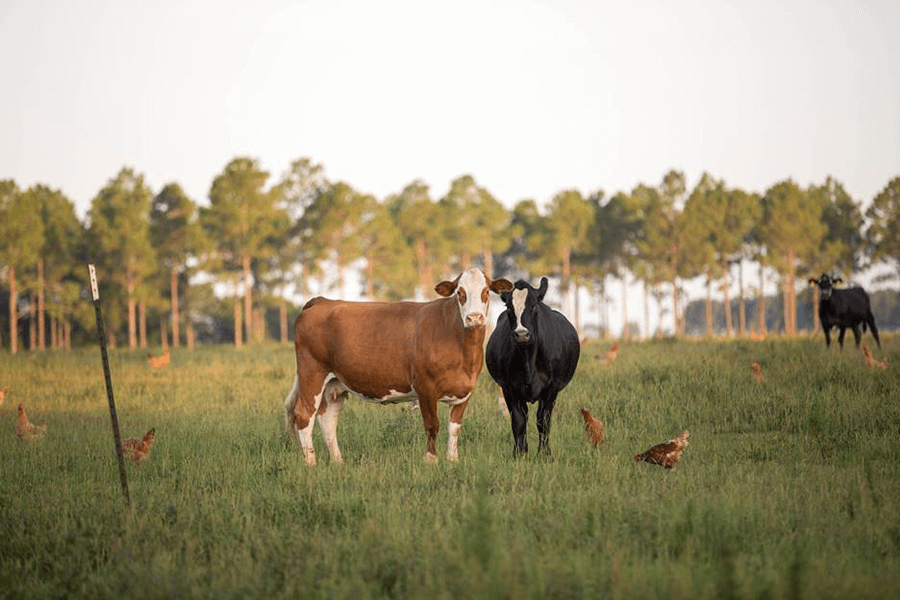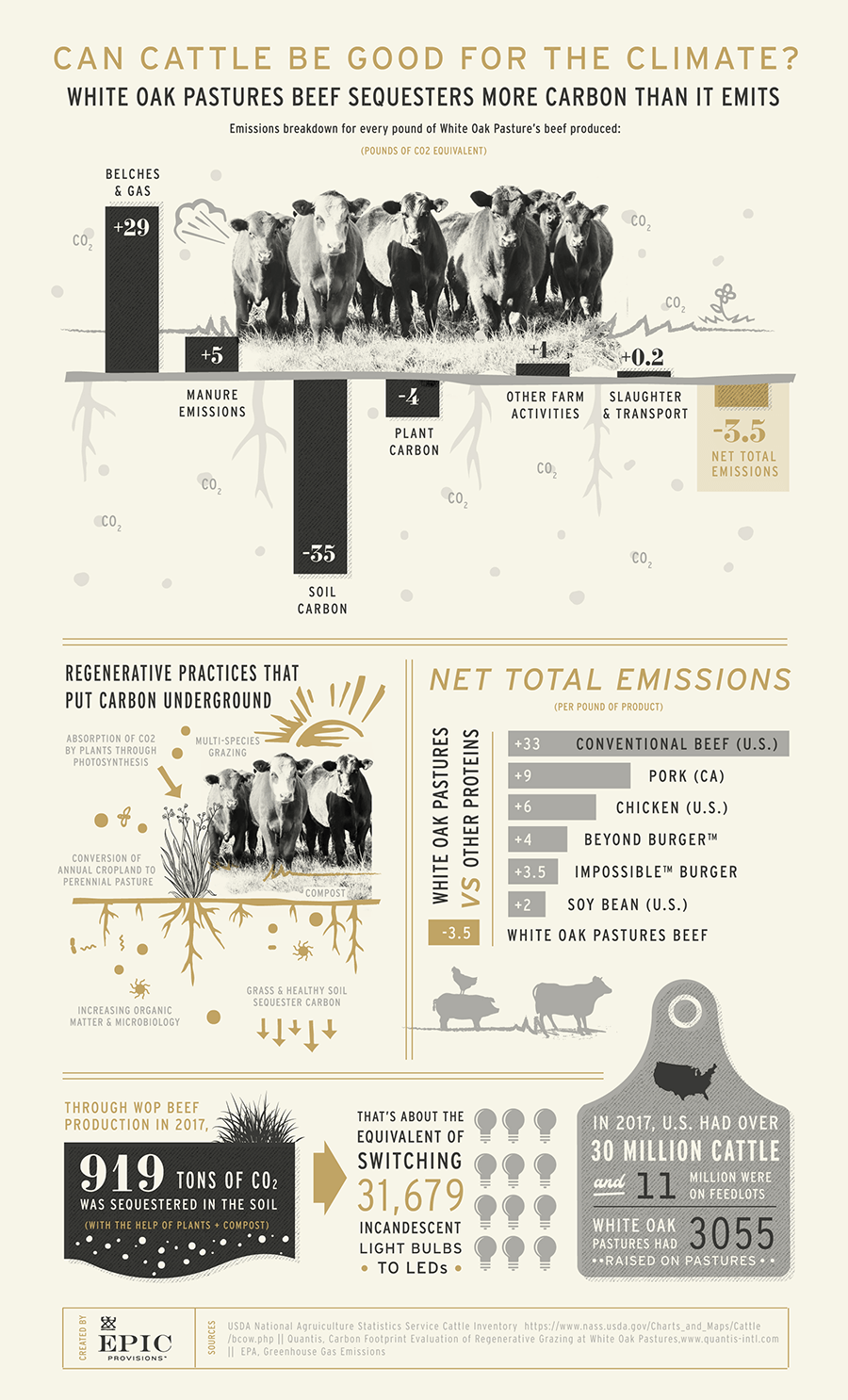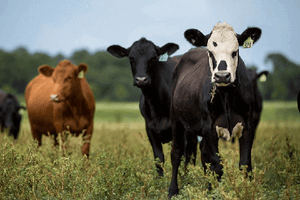What if I told you that our generation’s understanding of livestock has been catastrophically wrong? What if the answer to our greatest threats as a civilization was lying in what we previously believed was the cause? What if I told you that in order to save the planet, you could start with eating properly managed red meat?

As a former vegan and current conscious carnivore, the realization that livestock is good for the planet has been revolutionary in my own journey. In fact, I pivoted my life’s trajectory to become a first-generation land steward, where I witness large-scale environmental regeneration through the proper management of animals on a daily basis. On a holistically managed ranch, livestock fertilize the soil and enhance below-ground biodiversity. Their hooves aerate compacted earth and improve water infiltration (this combats soil erosion and helps recharge aquifers). Livestock have the potential to enrich natural systems in a way that fosters more diversity and resilience within the surrounding wildlife habitat. Most importantly and least understood, livestock act as a catalyst for more effective carbon capture than any form of technology or tool created by humans. This is perhaps the greatest gift of ruminant animals for, when managed holistically, they can mitigate climate change!
With an urgent need to shift the paradigm for animals in livestock production, I feel inspired by and grateful for the release of what I believe is most important piece of science in the last decade. A recent lifecycle assessment was conducted on White Oak Pastures, a ranch that has been managed holistically by Will Harris, a great friend and colleague of mine, for over 20 years. A third party measured total greenhouse gas emissions through the evaluation of soil samples and data modeling. The results proved that the plants and soil are offsetting all if not more than the emissions from the cattle.
Many people, including my former self, believe that plant-based diets are the most promising solution to reversing climate change. However, most farmed crops (the basis of vegetarian and vegan diets) can be just as harmful to the environment as factory farmed animals that are confined and fed grain-based diets. Anyone who gazes down the property line at our ranch can quickly see the stark differences between properly managed livestock pasture and my neighbors’ tilled, sprayed, monoculture field. When observed side by side, there is no question which management system is more natural and regenerative for the planet.
I recognize that many consumers have lost touch with the land on which their food is grown and that the large majority of Americans have not spent time on a holistic and regeneratively managed livestock ranch like ours. That’s why we offer regular community events on our ranch where anyone can come out and see the power of regenerative agriculture for themselves. However, most consumers are so removed from the farming and ranching that produces their food that they instead look to mainstream media and science for guidance on how to eat sustainably for the planet.

Through a holistic lens, including rigorous protocols like the LCAs shown above, a new generation of biologists, agronomists, and researchers have concluded that cows raised on regenerative ranches can create a carbon sink. LCAs on plant-based meat alternatives like Impossible Burger and Beyond Meat show that, while still less than conventionally raised beef, their production is contributing to the release of significant amounts of atmospheric carbon. Amazingly, when managed properly, cows can actually be more effective in combating climate change that plant-based alternatives.
While a growing group of livestock producers are witnessing the incredible power of adopting regenerative practices, it’s time for mainstream media and popular science to catch on. Until now, the work of regenerative livestock producers has been anecdotal and largely ignored in the public discourse. The results of the above lifecycle assessment must be amplified in order to create large-scale change in agricultural production models.
This research proves that rather than animals, the real culprits for climate change are humans who are mismanaging animals for food production. May this serve as a wakeup call to all environmentalists, conservationists, land managers, and every human that is mindful about the relationship between food and environmental health. If you want to consume a diet that creates a net positive return on the planet (while reversing climate change), this lifecycle assessment provides data-driven and scientifically robust evidence that choosing regenerative meat is part of the solution.



